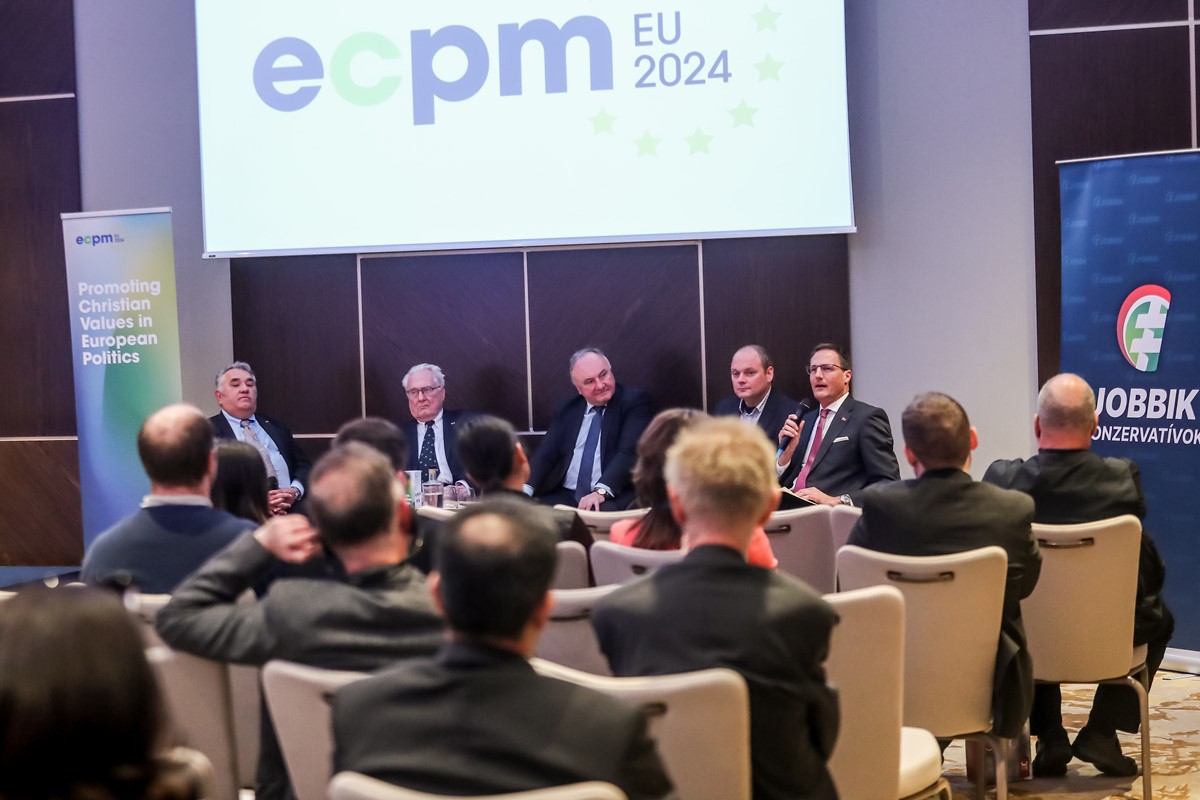
Friday, April 19, 2024
Quo Vadis Hungary? Christianity & Civil Liberties in Europe
On 19 April in Budapest, we held a panel discussion focused on the connection between Christian thought and values and the strengthening of democracy on the European continent. The panel was moderated by Teplán István, President of Prosum Foundation.
Former presidential candidate in Hungary and Professor of Economics at Oxford University, Péter Róna, opened the panel by setting the historical context. He argued that Europe in the form it is now is inconceivable without the likes of Shakespeare, Kant, Descartes, Bach, Spinoza etc.; likewise, we cannot imagine it without St. Thomas Aquinas, St. Augustine, Luther and the Christian faith. Christianity is part of the story of Europe, the ethical structure of our European civilisation is inextricably linked to Christianity. Modern European democracy is built on the teachings of Jesus and the tenets of St. Paul: (1) that all human beings are created by God and are His children- this is what the concept of equality is based on; and (2) that we have a soul, a conscience and free will. From this second tenet comes the idea of personal responsibility for our own acts to ourselves and to God. A secular power, therefore, cannot own, subject or control our soul and conscience.
Professor Róna continued in subsequent interventions to speak about the role of Constitutions as tools to limit political power, to hold those in power accountable and he pointed to the ironic contradiction in Hungarian law which says that changes to the Hungarian Constitution cannot be decided via referendum.
The next speaker, Pál Csáky, former Deputy Prime Minister of Slovakia for European affairs, human rights and minorities and former MEP, spoke about the role and place of ethnic minorities in the European landscape. He shared his personal story and spoke about his lifetime work in service of minorities, concluding that the European Union is an extraordinary force for good in that respect, the best form of government to protect minority rights, cultural diversity and to ensure their harmonious co-existence.
Jacques Bazen, ECPM board member and Lecturer at Saxion University, the Netherlands, presented the ECPM, its history and the work we do at European and national level. He spoke about our priorities and values during this campaign and about the collaboration with MEP Márton Gyöngyösi and Jobbik Conservatives party. During the panel discussion, he focused on the global economic landscape and its implications for Europe. He offered a brief analysis of the economic power of some of the countries with imperialistic tendencies: while Russia's power of disinformation and cyberwarfare capabilities are effective, its economic might is the size of BeNeLux. China's profile grew considerably in the last decade and although its economic influence is considerable, it lacks soft power which is equally valuable in the global order. The United States are certainly a force to reckon with, especially militarily. But their society is dysfunctional and they are deeply divided politically. He concluded saying Europe has real economic power, it is the largest trading block in the world and has the potential to be even larger and more influential if there is political will and courage.
MEP and Jobbik Conservatives president Márton Gyöngyösi spoke about the threat of Russia to the European way of life and to our values, especially through disinformation. He took Hungary as example and started with a brief history review in which he demonstrated that his country has had to make a choice repeatedly: either to align with the powers in the West or with the ones in the East. Joining the European Union was another such choice and Hungary chose the West then once again. It is thus disheartening and shocking to him and to the Western powers how at this time Hungary is slowly being turned Eastward and there are doubts creeping up as to whether it belongs in the Union. He concluded saying that Europe must take this threat seriously and be vigilant, especially with Hungary taking over the Council Presidency in the next semester.
The event was attended by 40 people: academics, students and civil society representatives who networked with the panelists and ECPM representatives over a light meal and drinks following the conference.